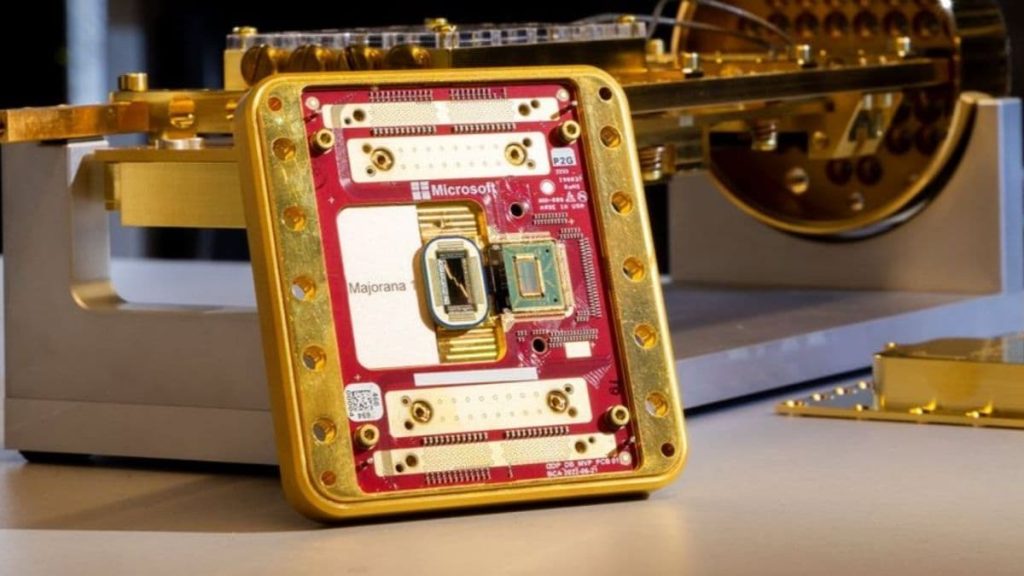Microsoft announced the development of the Majorana 1 chipset on Wednesday, highlighting a breakthrough in quantum computing. The Redmond-based tech giant has been researching new materials and architectures for 17 years and now claims to have developed the world’s first ‘topoconductor’ — a material that exists in a distinct state beyond solids, liquids, and gases. It can also observe and control the Majorana particles. The company said that this new innovation can lead to building scalable and error-resistant quantum computers. Notably, the Majorana 1 processor can accommodate up to a million qubits on a single chip.
Understanding Quantum Computing
Before exploring the Majorana 1 processor, let’s first understand quantum computing and how this breakthrough contributes to the advancement of reliable and scalable quantum computers. Traditionally, the computers (desktops, laptops, or smartphones) we are familiar with are called classical computers and they use tiny transistors in the chipset called bits.
These bits, which exist in either on or off states, can process information in a sequential order. So, if a classical computer is a library where each book represents a piece of information, bits pick up one book at a time and read through it. This is a slow process and can take a long time to complete complex tasks. This is why scientists fit in multiple transistors on a computer to induce parallel processing. Notably, thousands of such processors are paired together to create a supercomputer.
Quantum computers are fundamentally different. Instead of bits, they use quantum bits or qubits. These are special quantum materials such as superconductors or trapped atoms (or ions) and they follow the quantum physics of superposition. What this means is unlike bits, they can exist either in the states of on, off, or both at the same time.
Now, due to this superposition, qubits can process a large amount of data at the same time. Going back to the library analogy, quantum computers can open all the books at the same time to find the required information. This also allows these computers to process multiple possibilities at the same time, and they can complete research that typically takes decades within years.
While the potential is significantly high with qubits, there is a stability problem. Qubits are extremely sensitive to their environment and any minor fluctuations can lead to errors in processing. This is why quantum computing is still not used commercially or in research spaces.
Can Microsoft’s Majorana 1 Chipset Solve Quantum Computing’s Stability Issue?
The tech giant described the Majorana 1 chipset as the world’s first topological quantum processor. A topological state is a phase of matter that is distinguished by global, instead of local properties of its wavefunction. They can remain unchanged under continuous deformations, and resist the impact of the external environment.
Built on a new topological core architecture, the Majorana 1 chipset can potentially accommodate up to one million qubits on a single chip that can fit in a palm. Interestingly, the tech giant is not using electrons for the compute. Instead, it uses Majorana particles, which were first described by theoretical physicist Ettore Majorana in 1937.
Majorana particles or Majorana fermions are exotic particles that act as their own antiparticles. These are topological superconductors, which means while the bulk of its structure remains superconducting, the surface or edge states are protected from disorder or impurities. Needless to say, Majorana particles do not exist in nature.
Microsoft aims to use these properties to create a more robust qubit, reducing the need for complex error correction mechanisms. This is said to lead to scalable and reliable quantum processors. However, these are early days, and the tech giant will still need to design and build the topological qubits.
The Windows maker is not the only company trying to innovate in the quantum computing space. Google, for instance, is developing its Willow chip using superconducting transmons in its Sycamore processors. Maryland-based quantum computing company IonQ is also developing a trapped-ion technology that offers low coherence times despite slower gate speeds. IBM and D-Wave are other companies working on the same problem.


